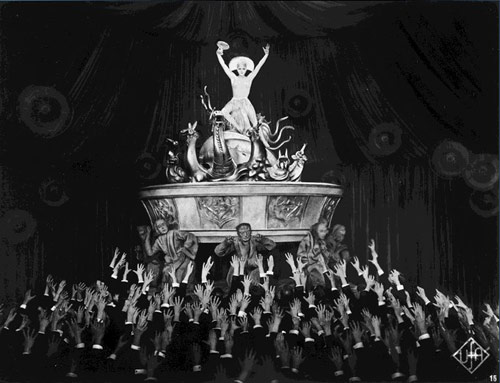"Metropolis" is Monumental
I suspect that for many people, Fritz Lang’s “Metropolis” is one of those films which everybody knows but few have seen. I was the same. From the very beginning of my passion for science fiction, the iconic robot was on the cover of the VHS and pictured in every book where the film was mentioned in hallowed tones. What a shock then to finally discover that this character plays such a tiny part in the actual film! Actually, that's not entirely true, but to say more would rob the film of one its many surprises.
“Metropolis” had an ignominious debut upon the cinematic stage in 1927. It was heavily edited almost immediately after its theatrical release and yet it was still a huge loss for studio UFA because of the massive production budget. The film’s history since then was plagued by more alterations in the form of colorization and new soundtracks, none of which served Fritz Lang’s prescient vision.
In 2008 something wonderful happened in the Argentinian capitol of Buenos Ares. A 16mm reduction negative of the original cut was discovered. While heavily damaged, this print was cleaned and restored as best as possible and finally, after over eight decades of darkness, the true light of “Metropolis” was able to shine again.
I had never seen the truncated version of the film, and I’d not been aware that the versions in circulation were not complete. What a blessing that was as I didn’t have a previous memory in my mind with which to constantly compare. I watched the restored version with virgin eyes, and it was an incredibly moving experience.
Of course, there are elements to the story and characters which will no doubt feel outdated or cliché, but one must be mindful of the time when “Metropolis” was released. The language of film was still quite new, being barely thirty years old. Tropes and genres were still coalescing, but the creative energy and fervent enthusiasm of “Metropolis” suffuses every frame with a supernova of invention.
What is especially interesting about watching the Complete version is that you can tell which parts are restored and immediately realize how necessary they are to the story and characters. “Metropolis” is now just over two and half hours, and it needs every second to convey its multilayered message. The film builds to a tremendous climax that is just as relevant now as it was almost one hundred years ago.













No comments:
Post a Comment